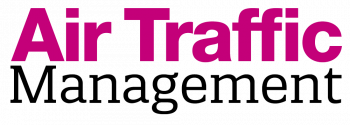48 research and innovation projects funded under the Digital European Sky programme of SESAR JU have been selected with a total investment of 350 million euros. With a success rate of 60%, Deep Blue was awarded 17 projects, four as Coordinator.
SESAR 3 Joint Undertaking has selected 48 research projects under the ambitious Digital European Sky research and innovation programme, with a total investment of € 350 million by the aviation industry and the European Union through Horizon Europe. The projects address exploratory research, industrial research, and activities to fast-track innovative solutions for the aviation sector, with the aim of making air traffic management (ATM) in Europe ever smarter and more sustainable.
The Italian presence is particularly relevant. Deep Blue confirms its position as the leading SME in Europe for research and innovation projects in the Aviation and ATM sectors, leading 4 of the 48 selected projects and participating in numerous others (17 in total). The company, founded in 2001 and based in Rome, has already been the first Italian SME for projects won and implemented in Horizon 2020 (2014-2021) and the first in all of Europe as regards the aviation sector (source: European Commission). ENAV and Leonardo strengthen the Italian participation, leading one project each.
“With our proposals within the Digital European Sky, we have achieved a success rate of 60%. This confirms our deep expertise, recognized at the European level, in supporting the development of advanced technological solutions such as the entry of artificial intelligence in air traffic management” comments Stefano Bonelli, Head of Innovative Human Factors in Deep Blue.
The scope of the selected projects reflects the research and innovation priorities outlined in the SESAR 3 JU's multi-annual work programme and covers a wide range of technologies needed to deliver the Digital European Sky by 2040.
The 18 selected exploratory research projects aim to foster new and innovative ideas to transform air traffic management in Europe, as well as to encourage the coordinated exchange of knowledge and stimulate the future ATM skilled workforce. Among these, the four projects coordinated by Deep Blue are:
- AEROPLANE (funded with €992,626.25), to mitigate the climate impact of aviation and improve the sector’s resilience to climate change;
- CODA (€ 1,929,486.00), to develop a digital assistant capable of predicting future traffic, assessing controllers’ stress levels and attention span, and whether they would be capable of handling the anticipated workload;
- ENGAGE 2 (€ 3,749,987.50) will continue the predecessor project’s work in sharing the resources and results of the SESAR research and innovation programme with a view to informing future fundamental research, as well as transferring results towards application-oriented work;
- HUCAN (€ 998,900.00) will propose a novel and holistic approach for the certification and approval of AI-enabled ATM airborne and ground systems, targeting EASA, national authorities and air navigation service providers.
The 30 industrial research and fast-track projects address critical areas for change, including emissions reduction, automation enabled by artificial intelligence, resilient ATM service provision, as well as the swift uptake of solutions for the integration of drones (U-space), urban air mobility and multimodality and climate-neutral operations.
Among these, the GALAAD project (€ 3,848,817.01) led by ENAV will develop and validate a concept for dynamic required navigation performance (RNP) route allocation in the terminal area in order to make air traffic control operations more sustainable, resilient, responsive and adaptive towards changes in operational conditions and variations in traffic demand; while FCDI (€11,998,964.65), led by Leonardo, aims to specify and develop the future communications, navigation and surveillance technologies to support and manage the operational services, like the four-dimensional trajectory management, in the future ATM system.
The projects were selected as a result of a call for proposals in 2022 followed by a rigorous evaluation of the submitted proposals by independent experts.
